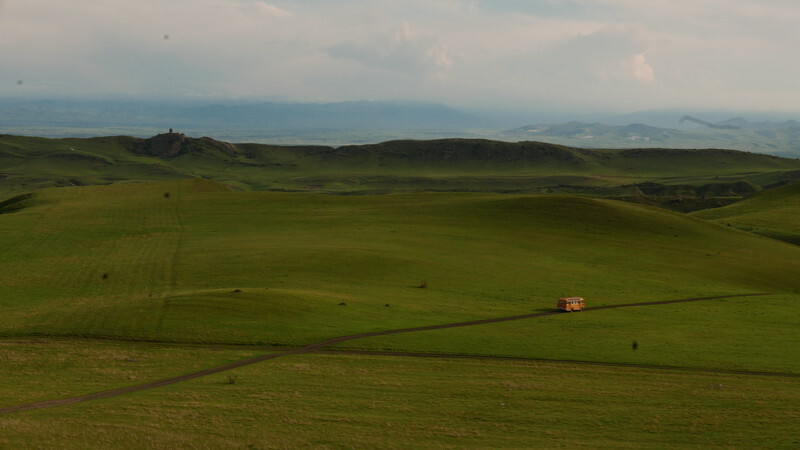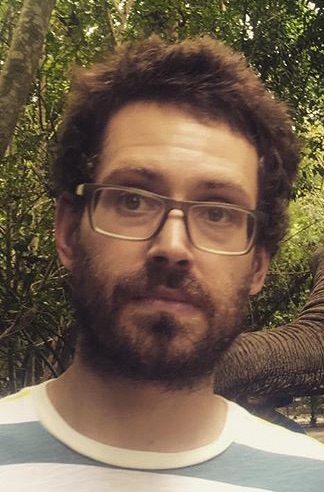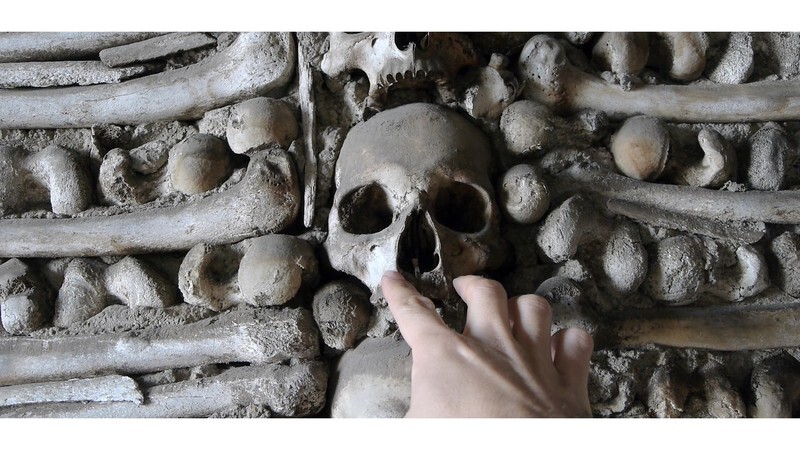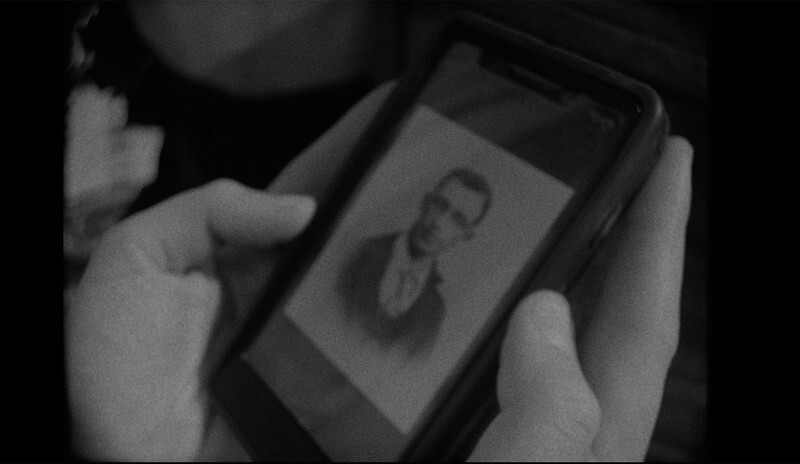Enticing Sugary Boundless or Songs and Dances about Death
Death remains elusive to the documentary camera. So, like many films that take death as their subject, Tania Khodakivska’s Enticing. Sugary. Boundless, or Songs and Dances About Death is really a film about life. That is to say, it’s a film about everything.
Opening with a brief prologue shot in New York, the film introduces us to composer and accordionist Guy Klucevsek, recently diagnosed with an asymptomatic terminal illness. “It’s a strange situation. You feel absolutely fine, but you’re told that you’re dying.” The camera attends warmly to Klucevsek when he speaks, but it cannot help wandering, exploring the surfaces of his apartment, lingering here and there on a patch of light. The presence of the filmmakers is not obscured, nor is it exactly foregrounded. “Let’s do a quick sound test,” we hear, as we see an effort to stage an establishing shot. The effect is not distance but greater intimacy, drawing attention to the specific time and place in which the interview was conducted and its nature as a collective production.
The three sections enumerated in the title indicate a peripatetic itinerary from Italy to Ukraine and then Georgia, developing a set of documentary vignettes that speak not so much about death, but around it. None of the variety of people who appear face their demise quite so imminently as Klucevsek, but the situation he describes is understood as merely an accelerated version of the most basic fact of life. Throughout, the scenes unfold much like that first one, with glimpses into the banal details of the documentary’s staging, and camerawork that is equally interested in people’s faces and the things that surround them.
In Italy, friends and family of Tonio Guerra, who died in 2012, erect a small memorial to the acclaimed poet, screenwriter, and playwright, and reminisce. In Ukraine, residents of a small town in the Eastern Carpathians go about their days in the lonely dead of winter, slaughtering pigs and fearing wolves; humans and animals living and dying together unremarkably. Finally, in Georgia, the filmmakers pay tribute to their fallen collaborator Giorgio Beridze, and residents of the town of Shukhuti face off against their neighbors in a raucous game of lelo burti.
Intermittently, the filmmakers will ask the person on the other side of the camera about death: whether or not they’re afraid, what they think the experience entails. “The coffin, and that’s it,” replies a wry, steely pubescent boy, gathering wood in the snowy mountain forests in Ukraine. “And you go into the hole, they fill the hole and they cover it.” Not everyone here is quite so blunt, but neither does anyone offer any compensatory fantasies of afterlife. For all intents and purposes, death is the end and there is no bargaining with it; preparation is just a matter of coming to terms with finitude.
Most theories associating cinema with death point to the dialectic of presence and absence inevitably produced by a film’s unfolding, its uncanny powers of reanimation. But in this film essay on death, Khodakivska does everything she can to keep the space-time of the screen racing to nip at the heels of the present. For the most part, the dead remain offscreen. The film does not directly memorialize them, not even the cinematographer Beridze, who worked on the film.Rather, it sets us among those who now remember. What is depicted is inescapably past, of course. But through the consistent displacement of the event by the camera’s restless, searching gaze, and the frequent intrusion of the practicalities of the filmmaking process, Khodakivska achieves something close to a perpetual now. She turns every surface over which the camera passes into a memento mori. What we are watching primarily is the passing of time, not just for those on screen, but for us in our seats.
“I assumed that once I got the diagnosis,” Klucevsek says early in the film, “I would be in a constant state of the present.” “But,” he sighs, “it’s exhausting to live in the present all the time,” For this hour and a half, it’s a pleasure.
|
|
Colin BeckettColin Beckett is an editor and writer. He lives in Los Angeles. He has written catalogue essays for the Ann Arbor Film Festival and the Viennale, and contributed to The Brooklyn Rail, INCITE Journal of Experimental Media, and Flow. |




